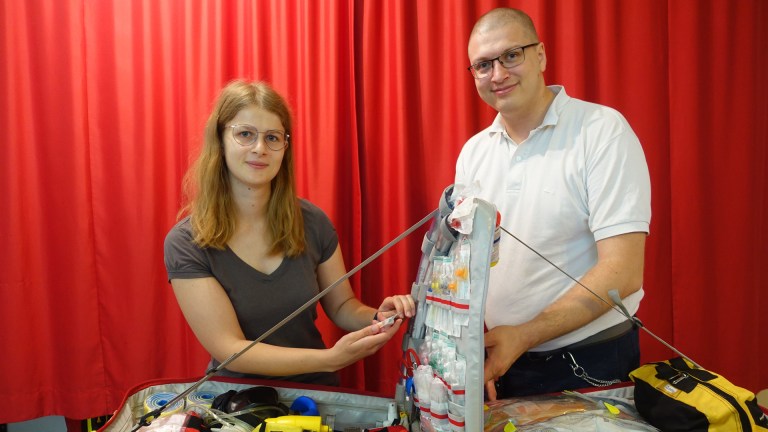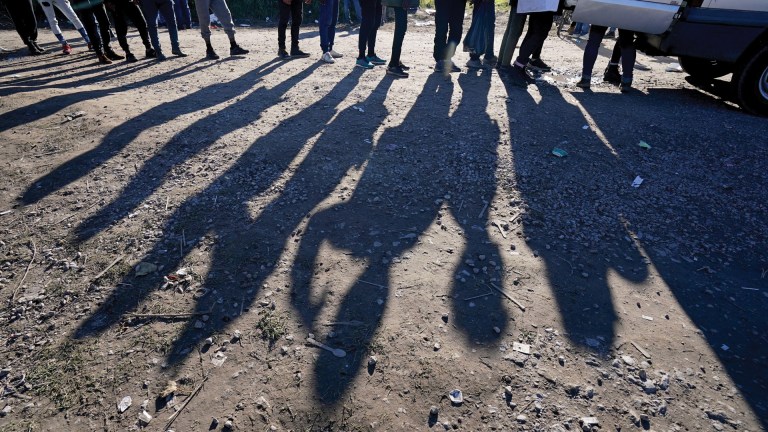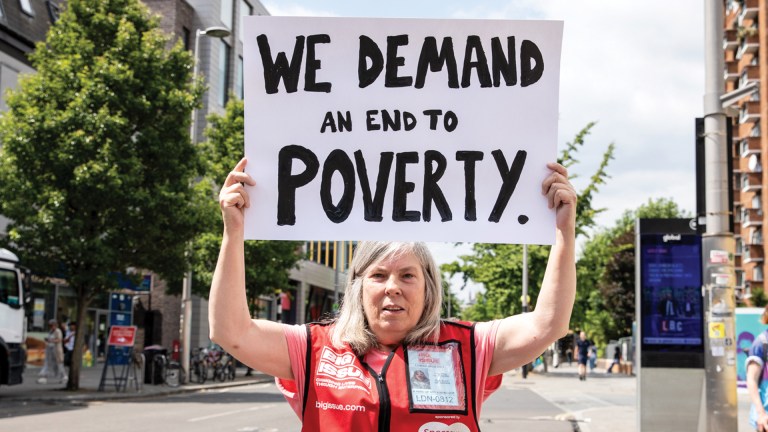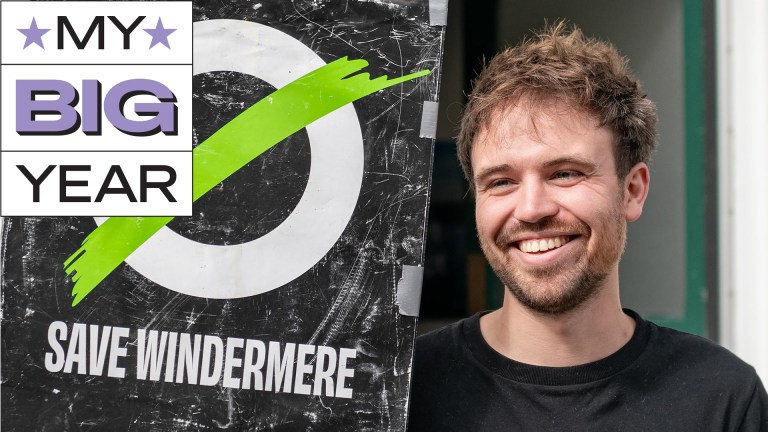But was his statement enough? While technology secretary Peter Kyle is expected to meet social media bosses in the coming days, far-right riots overran some UK cities over the weekend of 3 and 4 August. On Sunday evening, owner and CTO of X Elon Musk commented under a video of violent scenes in Liverpool writing: “Civil War is inevitable.”
Then, in response to a statement Starmer posted to Twitter the following day, saying his government would not “tolerate attacks on mosques or Muslim communities,” Musk commented: “Shouldn’t you be concerned about attacks on *all* communities?”
The Mixed-Race Experience
Naomi Evans told Big Issue that they had found the recent events not only “extremely distressing and upsetting,” but also very triggering.
“Growing up in the late 80s and early 90s in a seaside town in Kent there was a strong EDL, NF and far-right presence,” Naomi explained.
“We wrote a whole chapter in our book The Mixed-Race Experience titled Growing Up in a White Majority Town because being a racialised minority in a white majority town can be an extremely difficult life to navigate.”
Because of their childhood experiences, the sisters said they weren’t surprised at the violence incited by the far-right.
“For decades, the UK thought it could hide its racism if it just pretended, we had nothing to do with it,” Naomi continued.
“But years of Tory rule, the rise of far-right politicians normalising Islamophobia and anti-immigration rhetoric, and fake news stories, have led us to this moment.”
Why the language politicians use is key
Alongside their Instagram page, @EverydayRacism_ (where they have more than 200,000 followers) the sisters, who are of black Jamaican and white British heritage, run anti-racism training for companies and schools. Their work in this field led to them being named on our Big Issue Changemakers 2024 list in the media and campaigns category.
“Re-education and reframing white supremacist narratives is at the heart of what we do,” Naomi told Big Issue.
“The mainstream media and politicians have refused to explicitly name what is going on at the moment, which is clearly racism, Islamophobia, xenophobia, and white supremacy.”
“These are all issues linked to the far-right and how the far-right has been able to rise through a lot of the language that politicians like Nigel Farage, leader of the Reform Party, have incited.”
Farage’s campaign during his successful, eighth attempt at a seat in parliament earlier this year, was marred by reports of racism in his party. At least three people representing the party quit the race, with one candidate, Georgie David, citing the “vast majority” of Reform candidates” as “indeed racist, misogynistic, and bigoted.”
Now the MP for Clacton-on-Sea, Farage released a statement across his social media platforms on Monday 5 August, saying he had been, “totally appalled by the levels of violence,” over the weekend. However, he also wrote, “the majority of our population can see the fracturing of our communities as a result of mass, uncontrolled immigration, whether legal or illegal”.
“The language [politicians] use is so important,” Naomi pointed out. “Politicians need to dispel the myths that the reason this country has soaring food prices, a housing crisis, and a lack of public sector funding lies at the door of minority groups – these lies absolve the elite and those in power. They continue to get richer whilst everyone else gets poorer.”
Natalie added: “The sad reality is that these people we see on the news are both ignorant and full of hate but they could also be relatives or colleagues. We would be so much stronger if we all worked together, but the divide-and-conquer tactic is what has always worked for those in power.”
While in times like these it’s easy to feel helpless and lost about what to do, the sisters insist that they absolutely believe in people power and the strength in unity.
“It’s important to remember, social media can rapidly help bring people together to support their communities,” Naomi advised.
“We need to make sure we are following accounts sharing the correct information and not get tied up in false narratives and information being spread.”
Natalie agreed. “I think social media is an accessible way for people to learn and understand what is going on,” she continued.
“But sharing and posting is, at times, the bare minimum in what people can do when it comes to activism.
“Of course, there are people out there for whom this is their activism because of accessibility – they can’t physically get out and do other things – but for others, people think by sharing a post they have done their bit.
“As we said before, we need to unite, and some of us need to be more active in what we do. There will be many national days of protest to stop the far-right, but I would also say to White folk to check in on their black and brown friends, especially the Muslim community. I have received messages from people checking in on me and it’s meant a lot.
“Let people know they are loved and not alone.”
Do you have a story to tell or opinions to share about this? Get in touch and tell us more. Big Issue exists to give homeless and marginalised people the opportunity to earn an income. To support our work buy a copy of the magazine or get the app from the App Store or Google Play.









